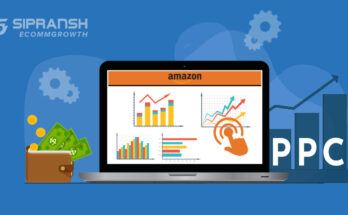The checkout line at your local grocery store used to be a slow procession through a maze of dimly lit aisles to your looming cashier at the end. You’d stand there, waiting, sometimes for what felt like hours, as each item was scanned, and you’d wonder if the time you’d have back would be worth the investment in a barcode reader for your own use at home.
Today, a grocery run is markedly different. Checkouts are swift and autonomous, with customers zipping through as effortlessly as the groceries slide down the belt. This transformation is thanks to the Point-of-Sale (POS) systems that have revolutionized transactions across the retail landscape.
Yet, as a consumer advocate and a believer in fiscal responsibility, I cannot help but ponder—have these systems, now synonymous with convenience, also laid the foundation for excessive, mindless purchasing? The question, then, is not whether POS systems empower businesses – they indisputably do – but rather, to what extent have they spurred the growth of impulse buying and consumer debt?
The Empowerment Aspect
There is no denying the monumental impact of POS systems. Businesses of all sizes have benefited from the tracking and inventory management capabilities that are now standard with modern systems. Small businesses, which operate on razor-thin margins, have seen particularly sterling results, as these systems help them reduce the wastage and shrinkage that often prove catastrophic.
The integration of customer loyalty programs, digital coupons, and ease of transaction has cemented a new era of consumer-company interaction, fostering brand loyalty and personalized services.
POS technology has leveled the playing field, allowing boutique shops to offer the same streamlined experiences as their corporate competitors, creating an ecosystem where every cent, and customer, counts.
The Cautionary Tale
However, a darker narrative unfolds when we turn the figurative prism of consumer spending. The digital age has birthed a culture of instant gratification, and POS technology is the deceptively friendly usher at the gate. The one-click purchases and tap-to-pay options reduce the friction in transactions, but this seamless experience also paves the way for impulsive spending decisions that can result in buyer’s remorse and financial strain.
Impulse buying is a multi-billion-dollar industry. The predictability and controllability of consumer spending have been disrupted, and the onus lies on businesses and consumers to sidestep the pitfalls. From the perspective of consumer empowerment, POS systems are not without casualties, as they sometimes lead to the purchase of items without adequate consideration or financial planning.
Finding a Middle Ground
In the battle between POS systems that empower business and the cautionary tale of impulse buying, the victor remains ambiguous. The middle ground is where we must congregate to harness the merits of POS technology while safeguarding against the Goliath of impulsive spending.
Businesses can cultivate responsible purchasing habits among consumers by championing transparency and robust return policies. For example, companies can implement cooling-off periods for high-ticket items bought through POS systems. This allows customers a second chance to think through their purchase when adrenaline’s sway has dissipated.
Consumers, on the other hand, must engage in mindful spending, despite the convenience posed by POS systems. Using budgeting apps and setting personal spending limits can act as a bulwark against the allure of instant gratification. It is crucial to see POS systems as tools that can be wielded for good or ill.
Conclusion
The dichotomy of POS systems is not a matter of inherent good or bad; it is a tale of dual potential and responsibility. We must strive to find equilibrium in our transactional experiences, guided neither solely by the zeal for efficiency nor by an aversion to possible indulgence.
I stand by my stance that POS systems are a balance of empowerment and caution, bridging opportunities for dynamic business growth and personalized shopping experiences with the looming shadow of impulsive spending.
As we continue to ride the wave of digital commerce, we must use every resource – including the very systems that enable this transformation – to steer toward a financial landscape where consumers are knowledgeable, empowered, and in control. Only then can we harness the full potential of POS technology, not as an enabler of impulse buying, but as a facilitator of conscious consumerism.




